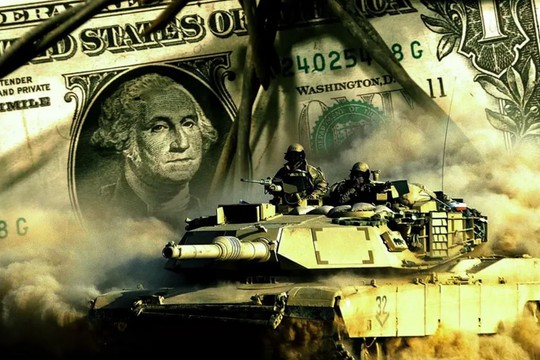Making military aid to Kyiv more predictable would send a message to Russia that it won’t win the war, said the alliance chief, POLITICO informs.
NATO chief Jens Stoltenberg wants a revolution in how the alliance finances and arms Ukraine, but his plan drew a mixed response from NATO foreign ministers on Wednesday.
The secretary-general's idea is to take the politics and uncertainty out of military aid to Ukraine by setting up a five-year, €100 billion fund and having the alliance shoulder more of the weight in organizing arms for Kyiv.
"We must ensure reliable and predictable security assistance to Ukraine for the long haul," Stoltenberg said ahead of the meeting, "so that we rely less on voluntary contributions and more on NATO commitments. Less on short-term offers and more on multi-year pledges."
The driver is what's happening in Washington, where a $60 billion military aid bill has been stalled in Congress thanks to resistance by some lawmakers from the Republican Party and from their presidential candidate, Donald Trump.
Although Stoltenberg avoided mentioning Trump by name, he made it clear that the situation in Washington is a worry.
"Every day of delay in the decision of the United States in providing more support to Ukraine has consequences on the battlefield," he said, adding that Russia is now able to "outgun" Ukraine.
The secretary-general's plan would upend NATO's current role. Most of the alliance's 32 members are supplying military aid and cash to Ukraine through the U.S.-led Ramstein format, which organizes arms for Ukraine.
Having NATO take charge of the body would mean the alliance is stepping beyond its previous role to focus only on non-lethal supplies to Ukraine. The proposal was first reported by POLITICO earlier this week.
"A stronger NATO role in coordinating and providing support is a way to end this war in a way where Ukraine prevails," Stoltenberg said.
The aim is to make Ukraine aid less dependent on national politics, allowing it to plan for the long-term.
One suggestion is for NATO members to contribute to the €100 billion fund according to the size of their economy. That would reduce the overall share paid by the U.S. and also undermine the argument used by Trump that European allies aren't pulling their weight.
Stoltenberg played down fears that a bigger NATO role would weaken the American presence — highlighting the dual role played by Christopher Cavoli, commander of U.S. European Command and Supreme Allied Commander Europe.
"General Cavoli is the U.S. commander in Europe, but General Cavoli is also the NATO commander in Europe," Stoltenberg said. "And of course, I think General Cavoli coordinates with General Cavoli — it's the same man."
But such a radical change in NATO policy needs the approval of all members.
Although NATO spokesperson Farah Dakhlallah said that the ministers "agreed to move forward with planning for a greater NATO role in coordinating aid to Ukraine," the discussions are likely to continue until July's summit in Washington.
The initial reaction on Wednesday was mixed from ministers in Brussels to celebrate the 75th anniversary of the alliance.
After the presentation, some ministers rolled their eyes at the €100 billion number, wondering where it came from, said a diplomat speaking on condition of being granted anonymity.
Hadja Lahbib, Belgium's foreign minister, warned: "It is dangerous to make promises that we cannot keep."
Some West European countries worry that giving NATO that much money and power would undermine efforts for the European Union to play a larger role in defense.
The NATO proposal also threw up a lot of questions on the details. A key issue is whether the financial target consists of fresh money, or is merely made up of existing programs that allies are sending individually to Ukraine.
read more in our Telegram-channel https://t.me/The_International_Affairs

 12:04 05.04.2024 •
12:04 05.04.2024 •























